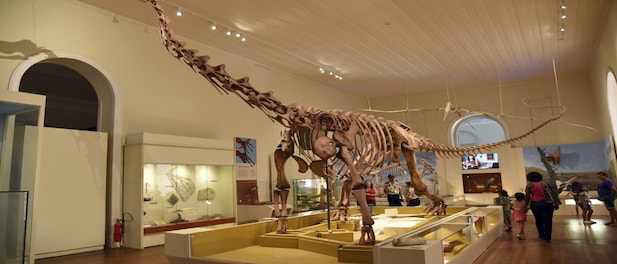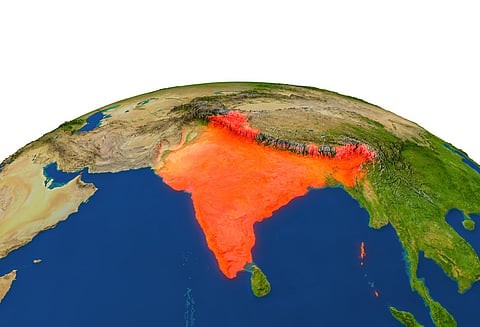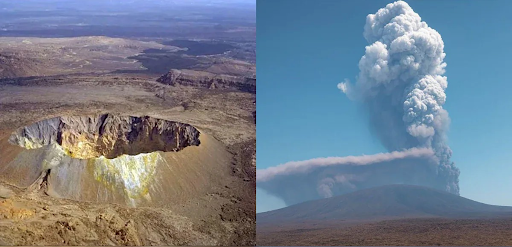Description

Disclaimer: Copyright infringement not intended.
Context
A significant scientific discovery made by researchers from the Indian Institute of Technology (IIT) Roorkee and the Geological Survey of India (GSI).
Details
- Scientists from the Indian Institute of Technology (IIT) Roorkee and the Geological Survey of India (GSI) have made a significant discovery in Rajasthan's Jaisalmer region.
- Oldest fossil remains of a plant-eating dinosaur were unearthed, indicating a new and previously unknown species.
- Sunil Bajpai, former director of Birbal Sahni Institute Palaeosciences (BSIP), and Chair Professor of Vertebrate Paleontology at IIT Roorkee, along with colleague Debajit Datta, conducted a detailed study on the collected fossils.
Implications for Dinosaur Evolution and India's Role
- Earlier, fossils of Dicraeosaurus dinosaurs had been found in other parts of the world, including North and South America, Africa, and Asia (China), but never before in India.
- The discovery highlights India's significance as a major center of dinosaur evolution.
- The systematic fossil exploration and excavation program initiated by GSI in 2018 in the Middle Jurassic rocks of Jaisalmer region led to this groundbreaking finding.
- Bajpai noted that the study suggests India's historical role in the evolution of dinosaurs.
Key Findings and Naming of the New Species
- The research, involving a team of six scientists from IIT Roorkee and GSI, revealed that the first-ever dicraeosaurid dinosaurs in India existed in the Jaisalmer region.
- The newly discovered species was named "Tharosaurus indicus," with the first part of the name indicating its origin in the Thar desert and the second part denoting its country of origin, India.
- The rocks containing the fossil remains are estimated to be around 167 million years old.
- This finding establishes the "Tharosaurus indicus" as not only the oldest known dicraeosaurid but also the oldest known diplodocoid globally.
Prof. Bajpai's Insights and Significance of the Discovery
- Bajpai emphasized the significance of the discovery, highlighting that it sheds light on India's rich dinosaur history.
- He mentioned that the fossils found are from the Middle Jurassic period, approximately 167 million years ago, providing valuable insights into prehistoric life on the Indian subcontinent.
- This discovery contributes to a deeper understanding of the global distribution and evolution of plant-eating dinosaurs.
|
PRACTICE QUESTION
Q)Recent genetic research has enabled scientists to extract and analyze DNA from well-preserved dinosaur remains. This breakthrough has the potential to:
A) Reanimate extinct dinosaur species through advanced cloning techniques.
B) Confirm the link between dinosaurs and modern bird species.
C) Establish the exact coloration and appearance of various dinosaur species.
D) Decipher complex dinosaur behaviors and communication patterns.
Answer: B
|

http://timesofindia.indiatimes.com/articleshow/102512175.cms?from=mdr&utm_source=contentofinterest&utm_medium=text&utm_campaign=cppst











